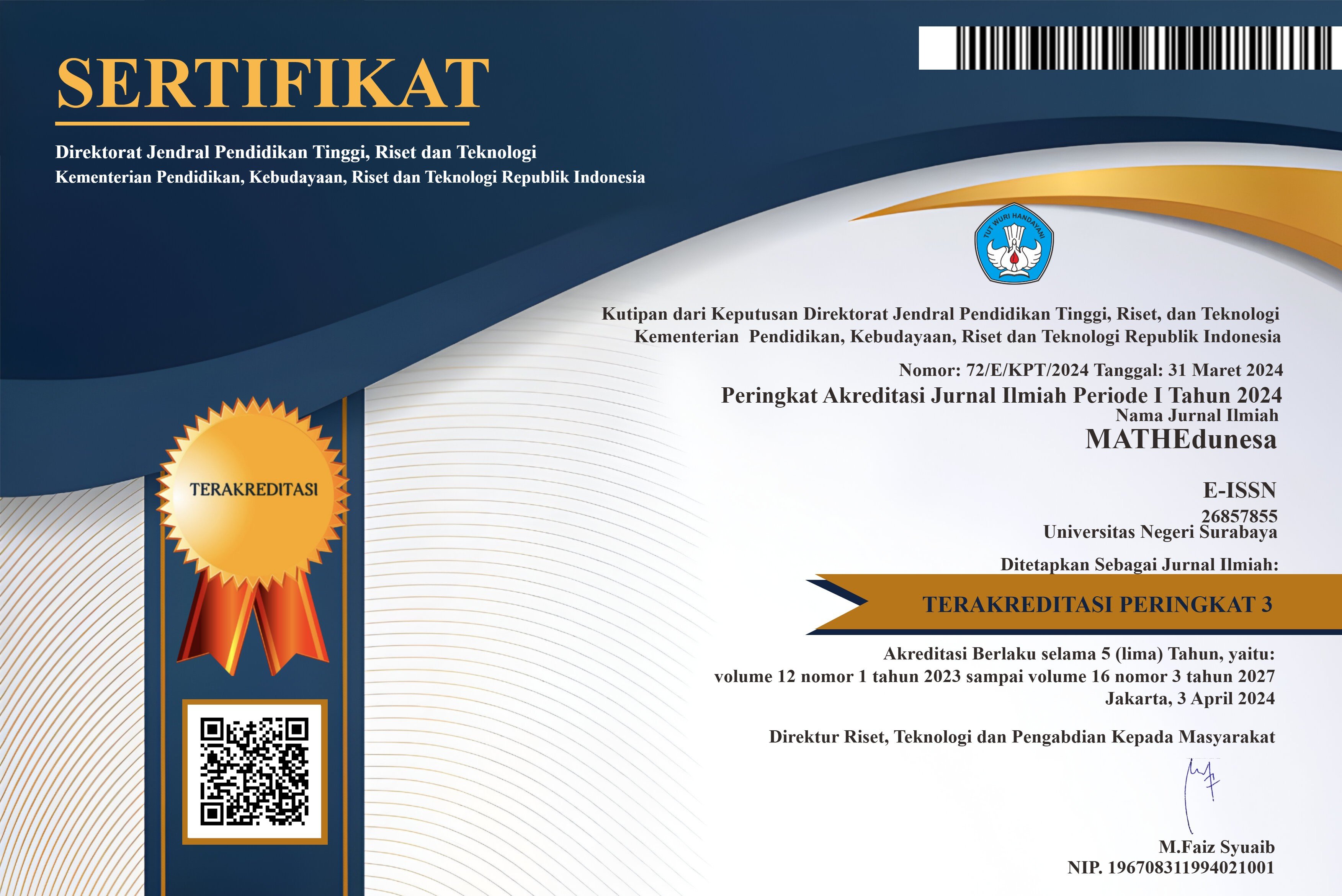IDENTIFIKASI KEMAMPUAN BERPIKIR KRITIS SISWA DALAM PEMECAHAN MASALAH MATEMATIKA OPEN-ENDED DITINJAU DARI GAYA KOGNITIF REFLEKTIF DAN IMPULSIF
DOI:
https://doi.org/10.26740/mathedunesa.v7n3.p550-556Downloads
Download data is not yet available.
Downloads
Published
2018-08-23
Issue
Section
Articles
 Abstract views: 109
,
Abstract views: 109
, PDF Downloads: 125
PDF Downloads: 125




